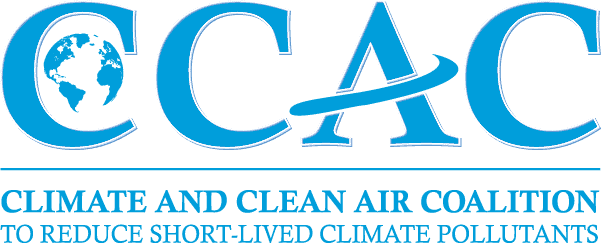

Addressing the environmental impacts on communities worldwide requires innovative and sustainable solutions guided by science. The Air & Waste Management Association (A&WMA) is a leading environmental policy and technology association. A&WMA’s annual conference brings environmental scientists, engineers, and regulators together to share the latest initiatives addressing communities’ environmental issues.
One of the conference highlights is the Air and Waste Environmental Challenge International (ECi) Competition. ECi gives student teams experience by proposing effective solutions to a simulated environmental problem based on real-world site conditions and events. This year’s competitors were:
The Challenge
Assuming the role as the new Governor of California, the student’s assignment was to choose a sustainable approach to regulate emissions from watercraft and reduce air quality impacts on port communities. Each student team described and justified their chosen program over other options.
This year’s challenge is the Bay Area, where San Francisco and Oakland have large ports with significant populations residing in portside communities. Each team’s research includes existing and proposed studies, policies, laws, and regulations related to emissions from port-related activities and their health impacts on portside communities at the federal and state level, including a critical review of California’s current regulations.
The Judges
The teams presented their solution to a panel of environmental professionals at the Annual Conference this week. Judges included environmental air monitoring experts and those from specialty practices such as technology, sustainability, and regulations. Impressed with the presentations from each school – choosing the ultimate winner was challenging.
All This Suspense – Who Won?
The team from California Polytechnic State University, San Luis Obispo, was selected this year. Cal Poly’s team members include Julia Loew, Ramy Wahba, Anja Cronjaeger, Marcus Lira, and Molly Foster.
Cal Poly’s solution addresses all watercraft with practical elements, including scheduling, speed, education, outreach, and technology. And to create a sustainable solution also addresses economic issues, impacts, and funding sources. The team presented their solution using an infographic (shown below), clearly presenting the path forward year after year.
We congratulate each A&WMA ECi team for their creative and thoughtful presentations. Our communities are in good hands with these soon-to-be professionals.
Article published in the January 2020 edition of Waste Advantage Magazine.
At the Federal level, GHG emission reporting has become part of the standard regulatory requirements; however, on the west coast, GHG programs continue to develop and evolve from reporting to reduction programs beyond federal requirements. Solid waste facilities can be impacted by all of these reporting mechanisms directly as a landfill located in the state in question, opting in for C&T as part of the LCFS in California, or in limbo, as the courts work out the legality of Washington’s Clean Air Act. More stringent federal GHG requirements are unlikely with the current administration, however, that could change with the 2020 election. In general, GHG rules and legislation keep developing and updating to account for and reduce GHG emissions.
Read, share, or download the full article here.

SCS Engineers provides engineering, consulting, operations and monitoring services to report and reduce greenhouse gas emissions. Select a service category to learn more.
SCS Engineers is proud to announce its acceptance as an “Actor” in the Climate and Clean Air Coalition to Reduce Short-Lived Climate Pollutants (CCAC). SCS will participate in the CCAC’s initiative to mitigate Short-Lived Climate Pollutants (SLCPs) from the Municipal Solid Waste sector.
The CCAC is a voluntary international framework that encourages countries and organizations to take concrete steps to reduce SLCPs in order to protect the environment and public health, promote food and energy security, and address near-term climate change. The initial focus is on methane, black carbon, and many hydrofluorocarbons (HFCs). Fortunately, as their name indicates, SLCPs have a relatively short lifetime in the atmosphere, and therefore determined efforts to mitigate them now can significantly reduce their concentrations in a relatively short period of time. Many cost-effective technologies and practices have already been implemented in key sectors around the world and benefits are being seen.

The Coalition sponsors eleven initiatives designed to address urgent environmental challenges through collective and individual partners’ action. Some of the initiatives include: reducing black carbon emissions from heavy-duty diesel vehicles and engines; promoting HFC alternative technology and standards; addressing short-lived climate pollutants from agriculture; supporting national planning for action; financing mitigation of SLCPs; regional assessments; and urban health.
Founded in 2012, the CCAC is the first global effort to address the urgent challenge of SLCPs. The Coalition encourages all countries, regional economic integration organizations (REIO), intergovernmental organizations (IGOs), non-governmental organizations (NGOs), and private sector entities that are committed to solving this global and collective challenge to participate in its initiatives. To date, 48 countries, 14 IGOs, and 43 NGOs participate in the CCAC.

Upon receiving the letter of acceptance, SCS Vice President Dana Murray said, “We are pleased to be approved as an Actor and believe this initiative makes a difference in the human health and environment of the cities it assists because it looks at improving municipal solid waste management holistically at the local level.”